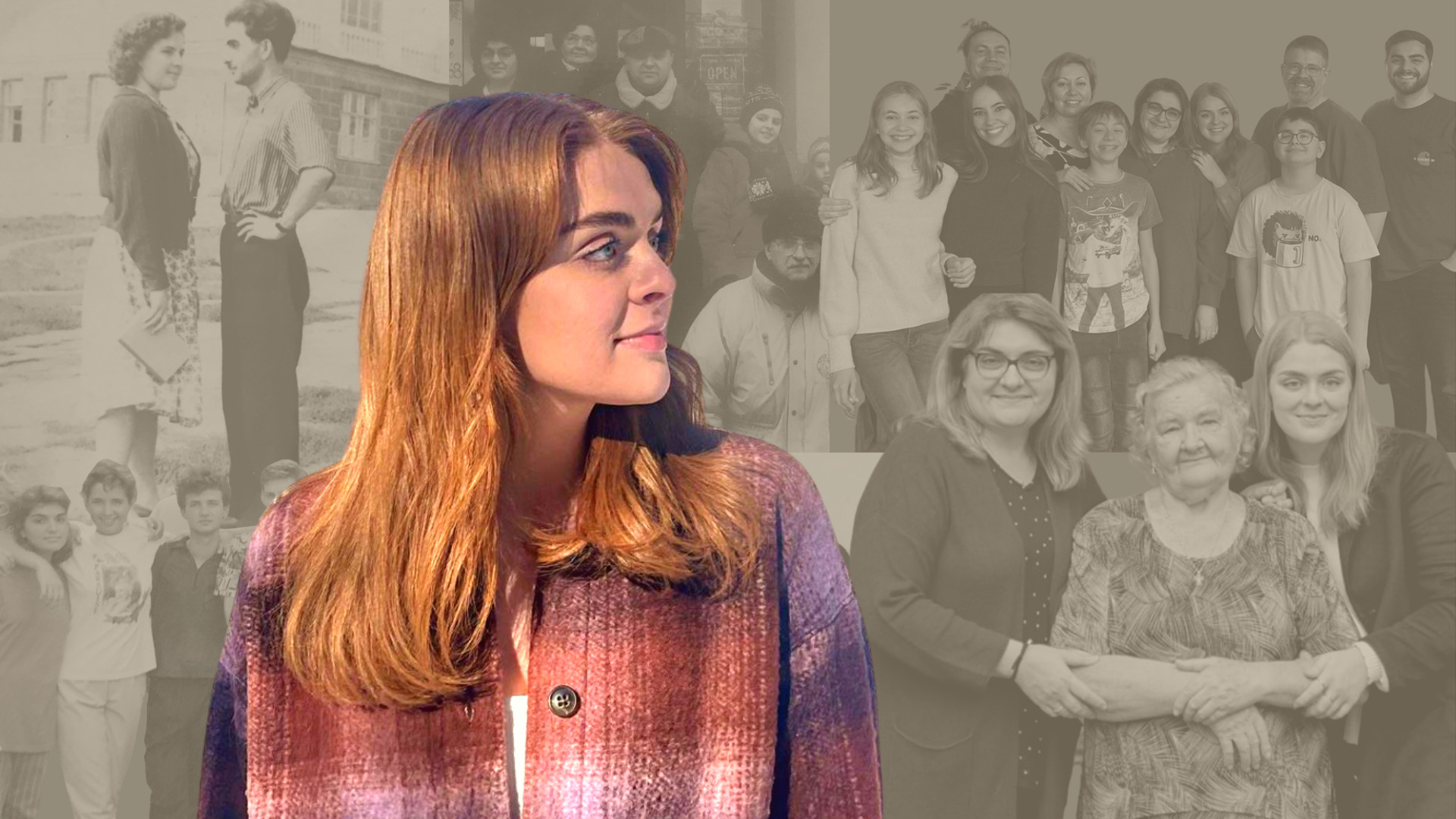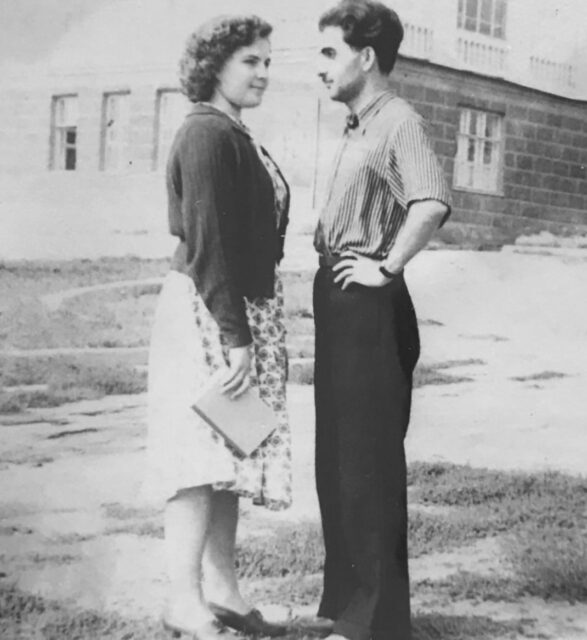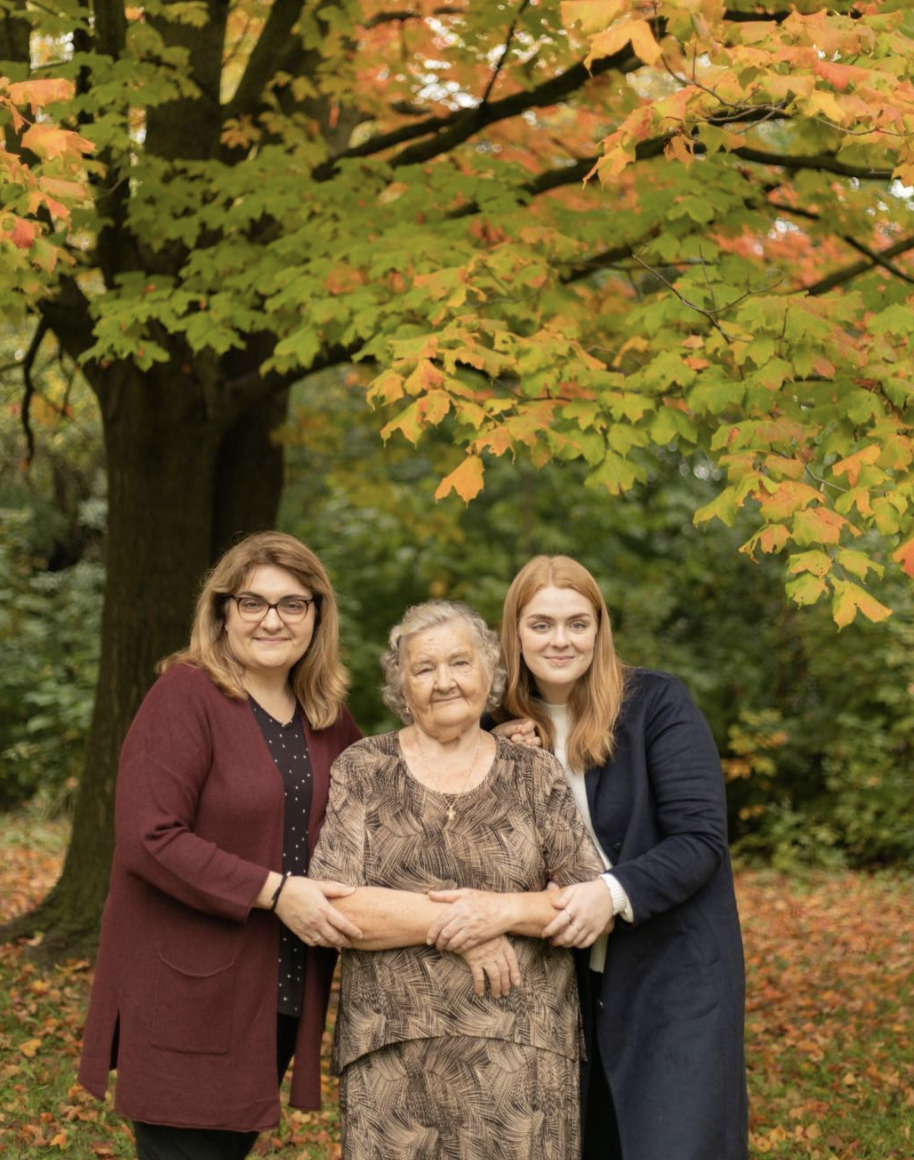
BYU student Nadia DeVol’s heritage is rich with Eastern European culture — her mother and grandmother are Ukrainian and her grandfather is Armenian. She grew up in Minnesota speaking Russian as her first language and spending time with her babushka.
DeVol’s ancestry isn’t just spread throughout the world; it is also heavily touched by war.
“My grandpa’s family fled Armenia,” DeVol said, citing the Armenian genocides that occurred throughout the early 20th century. “That’s how they ended up in Ukraine.”
Her grandmother is a native of Kyiv, where she and her husband met and were married. DeVol’s grandfather passed away when she was 3 years old and her grandmother migrated to Canada, where she now resides.

While DeVol’s mother’s immediate family are in the U.S. and Canada, the rest of her extended family on her mother’s side remains in Ukraine.
Her grandmother was living in Kyiv during the Battle of Kyiv, when Nazi Germany attacked Ukraine during their invasion of the Soviet Union in World War II.
“These are horror stories that I grew up hearing as a child,” DeVol said of her grandmother’s war stories. “These were things I was proud of — that my family still exists, that I exist as evidence of some kind of victory. How is this happening again?”
These were things I was proud of — that my family still exists, that I exist as evidence of some kind of victory. How is this happening again?
Nadia DeVol
Now, Ukraine faces war again, and DeVol’s extended family is at the center of the conflict.
Many of her family members remain in Donetsk and Mariupol, Ukraine, and several weeks have passed since DeVol last heard from some of them. DeVol said it’s difficult to continue going to work, studying and going about her day knowing her family is in the middle of the conflict.
“It’s kind of a surreal experience,” DeVol said. “I’m always checking the news. You’re just expected to not know every hour if your family is still alive.”
Although she can’t be in Ukraine at this time, DeVol constantly searches for other opportunities to help the Ukrainian people.
“This is such a big part of my identity; everybody knows I’m half-Ukrainian,” DeVol said. “People just started sending me things to give them.”
With so many connections to the country, DeVol gathered a list of trustworthy sources to donate to and she shares it with those around her. These sources then use the donations to buy food and supplies to take to those who are unable to leave Ukraine while the conflict continues.
“There are a lot of older people who can’t walk quickly and can’t get out of the country,” DeVol said. “They can’t escape so they are just staying in place, hoping for the best.”
DeVol said Meest, a Ukrainian-based corporation, is a great source for sending aid to Ukraine.

DeVol and her mother FaceTime every morning, hoping for updates from their family.
DeVol said her mother was talking to one family member in Ukraine and the family member said “I don’t care who wins as long as somebody wins soon and I can get out of this country and be reunited with my wife and child.”
Although many Ukrainian citizens have fled the country, men ages 18–60 are required to stay behind and fight.
DeVol loves her Ukrainian heritage but also expressed her love and connections with the people of Russia. She said it’s important to support Russian citizens and the Russian population.
“You can be pro-Ukrainian, but please don’t be anti-Russian,” DeVol said. “Nobody really knows what’s going on. The war is not their fault. I feel very strongly about that.”
DeVol’s love for the Ukrainian and Russian people was expanded during a mission she served for The Church of Jesus Christ of Latter-day Saints. She was called to serve in Seattle speaking Russian.
“There were only eight Russian-speaking members, and it was just me and my companion,” DeVol said. “It was an incredible experience.”
DeVol said the gospel plays an important part in her faith during this time of difficulty. “My mom is the only member of the Church in her family,” DeVol said. “She grew up in the Soviet Union and walked to her own baptism.”
Despite the emotional struggle she faces, DeVol expressed hope that God watches over her family and all involved in the Ukrainian crisis. True to her days as a missionary, DeVol wanted to share Alma 26:36-37 from the Book of Mormon.
The scripture reads: “Blessed be the name of my God, who has been mindful of us, wanderers in a strange land. Now my brethren, we see that God is mindful of every people, whatsoever land they may be in; yea, he numbereth his people.”
DeVol said she believes God will help her family at this time. “I know that God is behind these people. I am so grateful to be connected to such resilient people. It’s such a blessing.”




